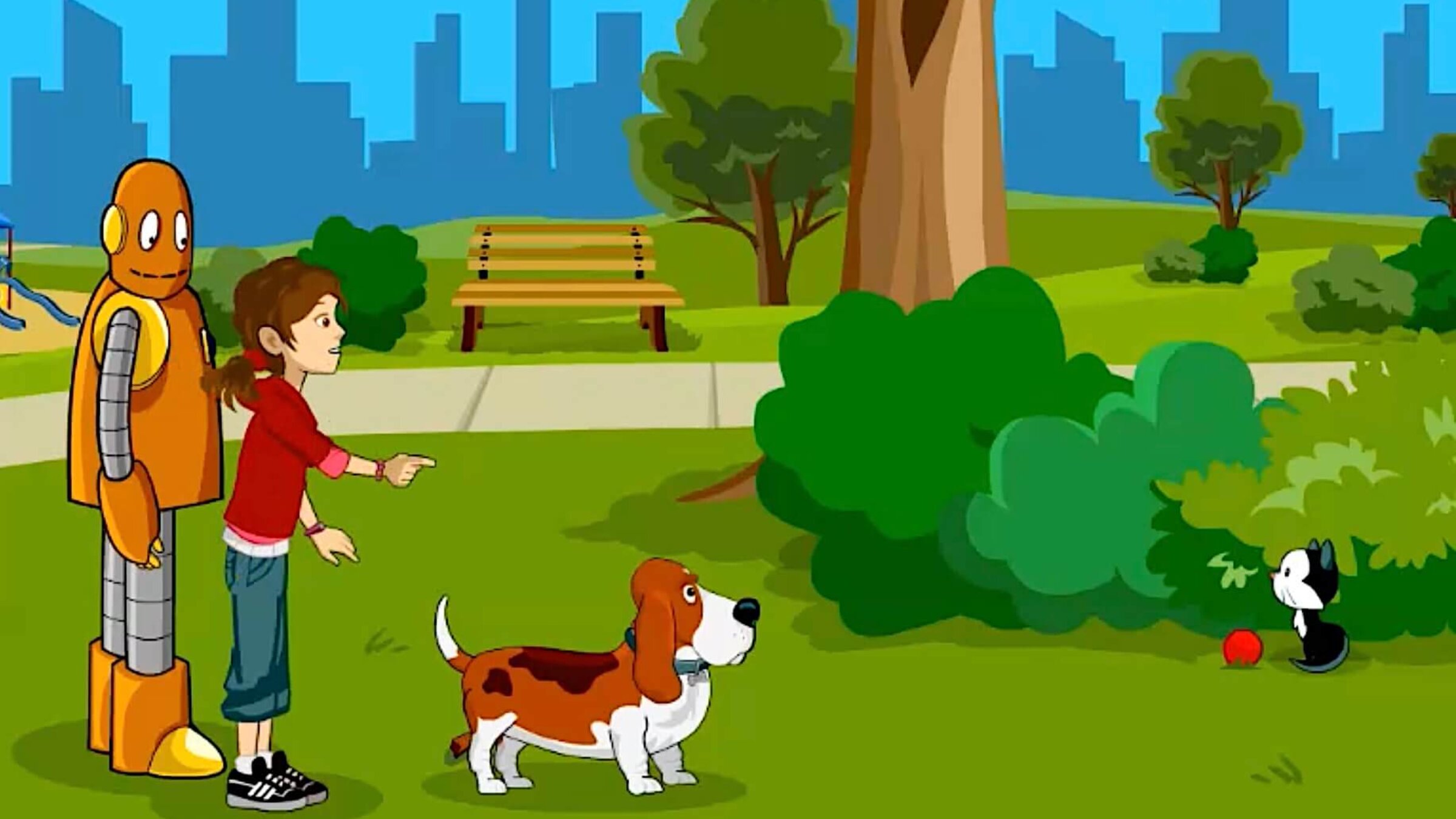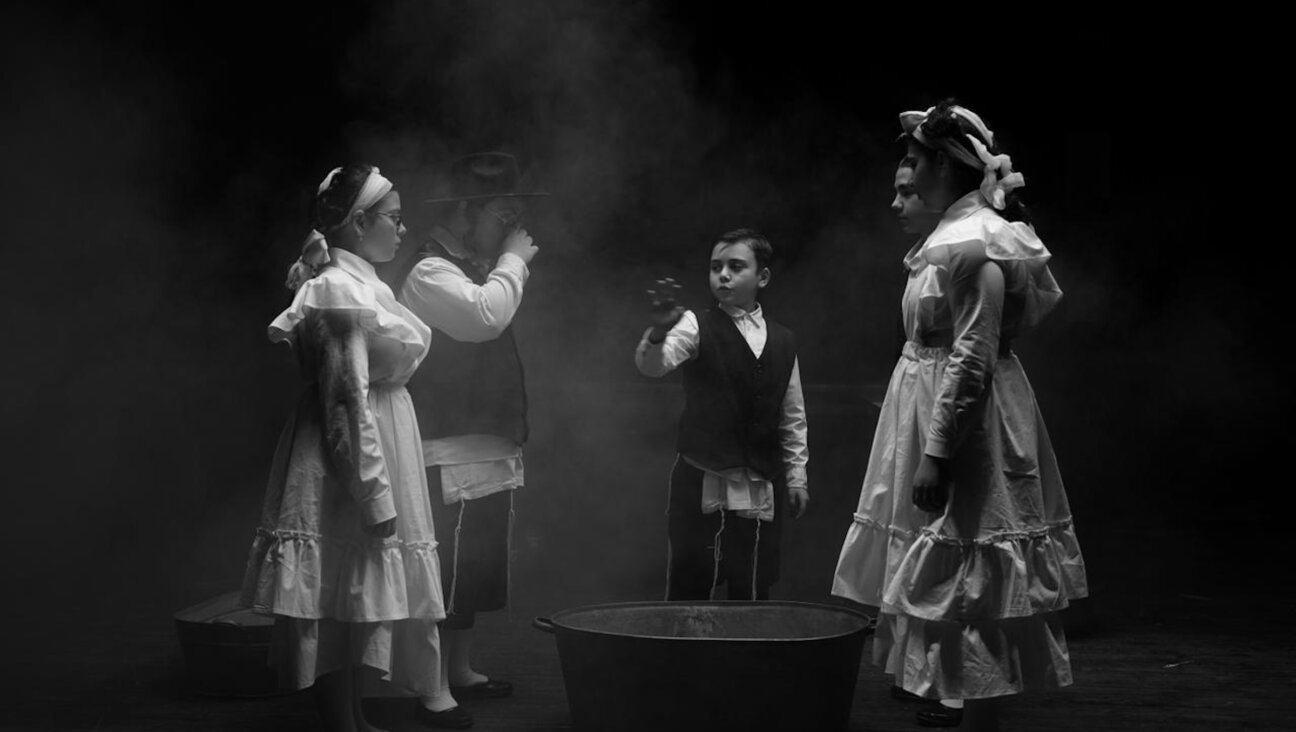Popular Yiddish learning program now offering grants
Yiddish teachers, students and parents praise YiddishPOP for the fun way it presents its lessons.

In one episode of YiddishPOP, Nomi tries teaching Mobi’s dog some tricks Photo by YiddishPOP
YiddishPOP, a free animated Yiddish language learning tool that has drawn much praise since its launch in June 2024, is now offering $500 grants to schools who use the program.
Each episode in this innovative online Yiddish course stars a pre-teen girl named Nomi and her robot friend, Mobi, who speak to each other in Yiddish at a slow pace, enunciating every word, making it easier for Yiddish learners to follow. The film clip is then followed by a lesson that teaches some of the vocabulary used in the story and simple rules of grammar.
Watch the very first episode of YiddishPOP here.
“I wish more teachers and Yiddishists knew about YiddishPOP and actively promoted it,” said Sefra Burstin, a Yiddish instructor in Melbourne. “I think it’s a great resource, fun, cool, modern and one that all, not just children, can enjoy and learn from.”
Meena Viswanath, an engineer in Aspen Hill, Maryland, who’s raising her children in Yiddish, includes YiddishPOP episodes in the social media choices she allows her young children to watch. “The rule is, if they see a video in English, they have to see one in Yiddish too. They enjoy it because the stories are both fun and funny, and they love the animation.”
According to a press release by the YiddishPOP creators, the microgrants could be used as a stipend for a teacher or parent who’s implementing the program either in a formal school setting or as part of a homeschooling curriculum.
YiddishPOP was conceived by the late educator Naomi Prawer Kadar based on the model of the educational platform BrainPOP, which her husband, immunologist and pediatrician Dr. Avraham Kadar, had founded in 1999 as a way to explain complex medical concepts to his young patients through animated videos. Prawer Kadar saw a lot of potential in developing a Yiddish learning program using the same informal educational style but she died of cancer before completing the project. Her family decided to carry the project through in her memory, gathering a team of Yiddish educators and experts to complete it.
For more information about the YiddishPop grants or to apply for one, go here.

















